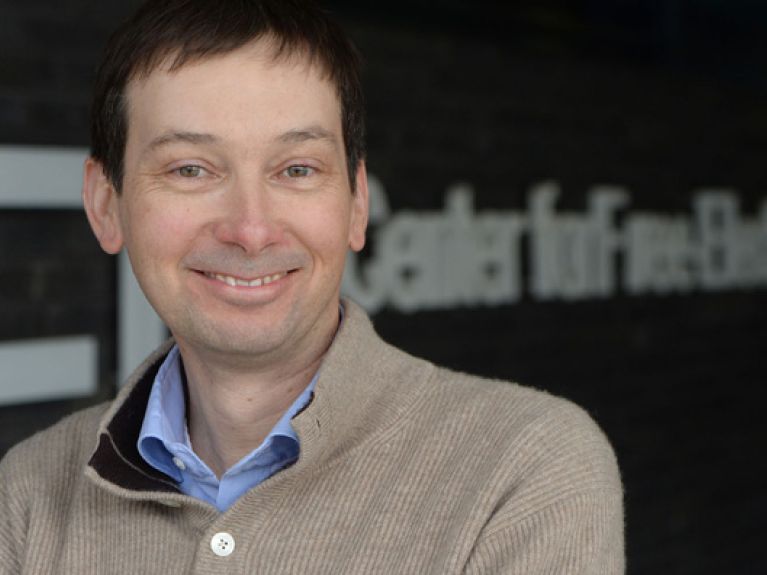Leibniz Prize 2015 for Henry N. Chapman
Leibniz prize-winner Henry N. Chapman praises Germany as a wonderful place for research.

Henry N. Chapman from the UK is one of eight scientists to be awarded Germany’s leading prize for research for his ground-breaking work in the field of X-ray physics and biological physics. Chapman has been a professor of physics at Universität Hamburg since 2007. An internationally renowned researcher, he is being recognized for his work on free-electron lasers (FEL), which are used to investigate complex molecules by means of ultra-short and high-brilliance X-ray pulses.
“There are only a very few places in the world that are building X-ray free-electron lasers, and only in Hamburg is there the necessary support to develop the science to benefit from these sources rather than just to build them”, says the British researcher: “What convinced me was the vision of bringing together groups all interested in pushing the frontiers of science opened up with new X-ray and electron sources, and supporting them to a level to be able to make an impact.” Chapman works at the Deutsches Elektronen-Synchroton (DESY), where he became a founding director of the Center for Free-Electron Laser Science (CFEL). The CFEL is a joint establishment of Universität Hamburg, DESY and the Max Planck Society. “Germany is a wonderful place for research. Compared to my experience in the US it is possible to make long-term plans and build upon our successes”, stresses Chapman. He believes that people in Germany understand that society needs a strong research base: “It is really amazing to me how interested non-scientists are in our work and in our research institutes.”
Born in the UK in 1967, Chapman studied physics and obtained his PhD in Melbourne, Australia, where he initially worked at the Commonwealth Scientific and Industrial Research Organization. In the USA he headed a working group at the renowned Lawrence Livermore National Laboratory, before accepting the chair in Hamburg.
2.5 million euros in prize money
Awarded annually by the German Research Foundation (DFG) since 1986, the Leibniz Prize honours outstanding scientists in all disciplines. It comes with 2.5 million euros in prize money, which Chapman can use over the next seven years to fund his research as he sees fit. The Leibniz Prize will allow him to take advantage of the even greater technical and scientific possibilities of the XFEL electron laser facility scheduled to go into operation at DESY in 2017.
Awarding of the Leibniz prizes on 3 March 2015 in Berlin

